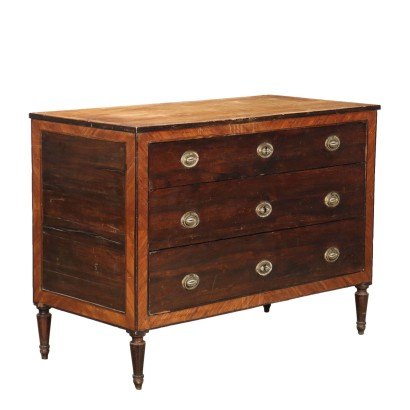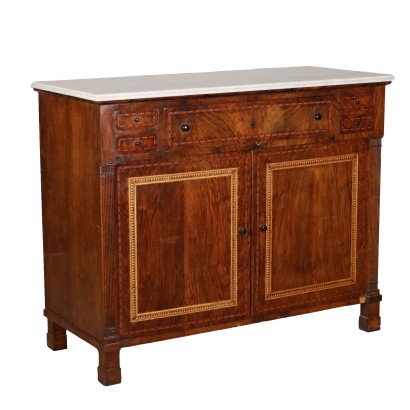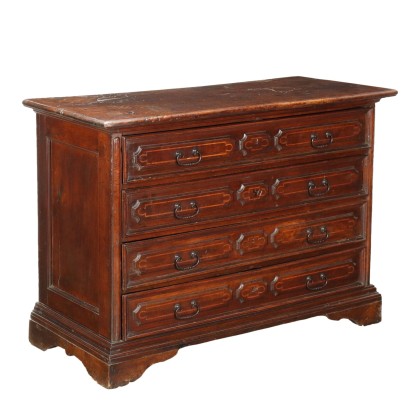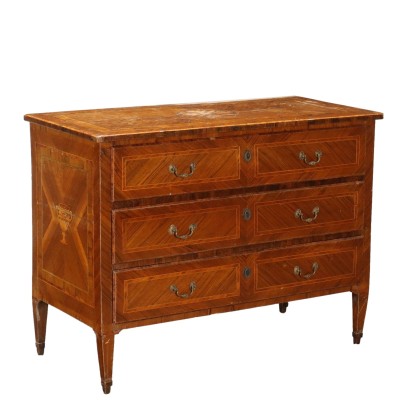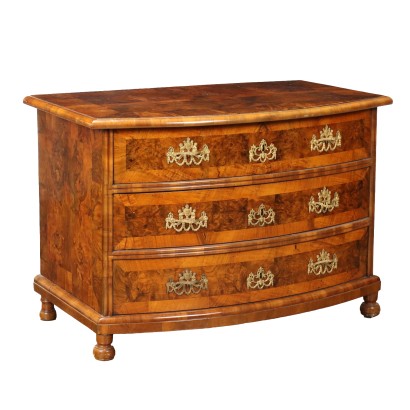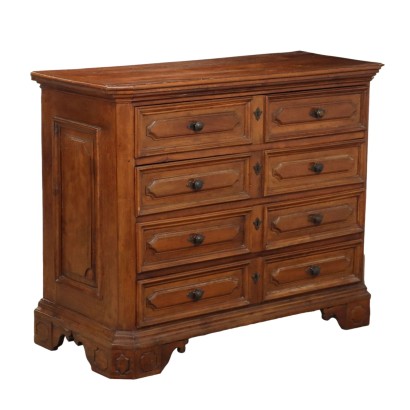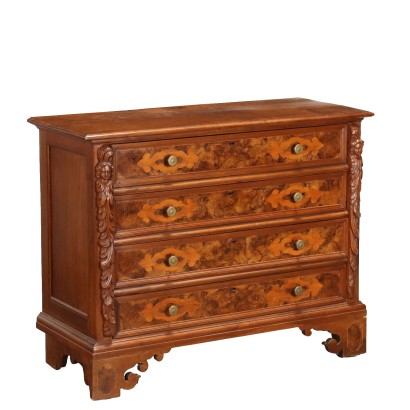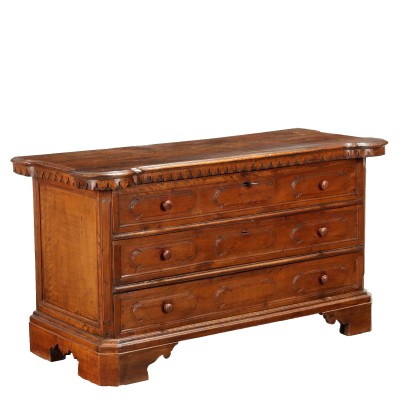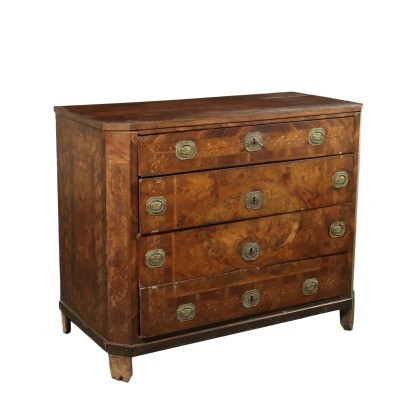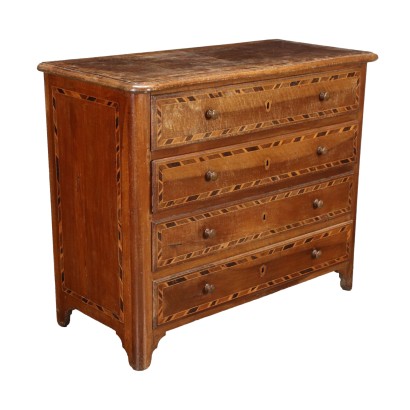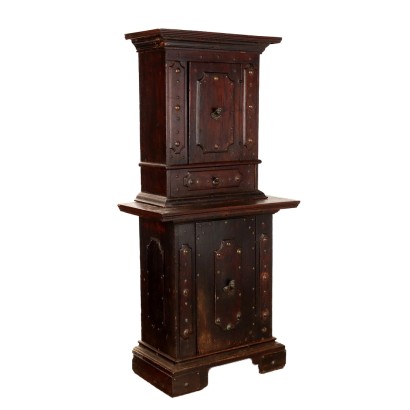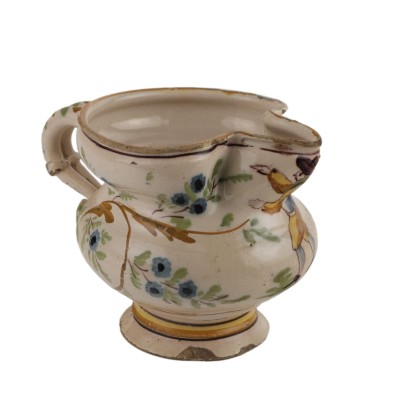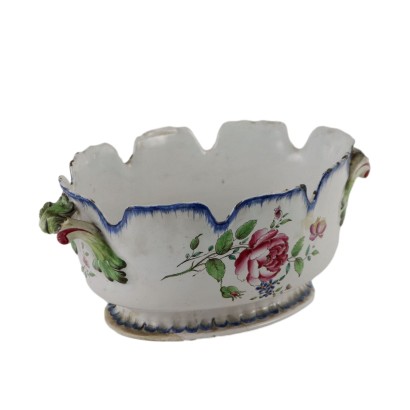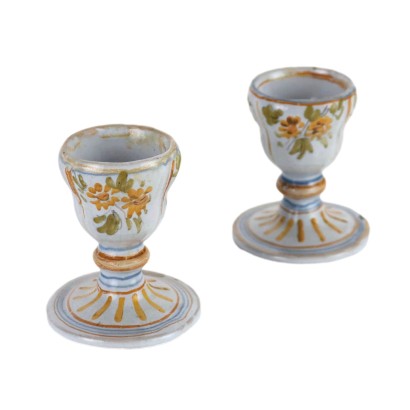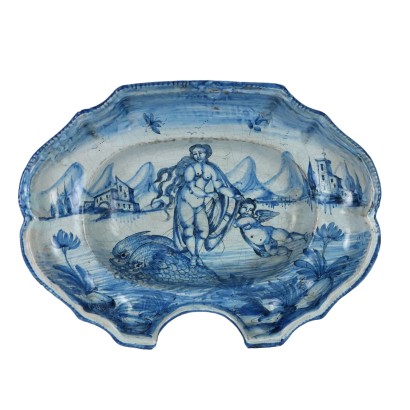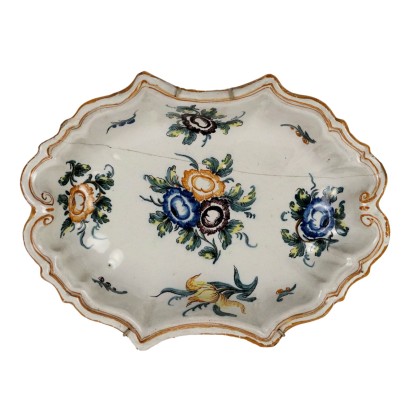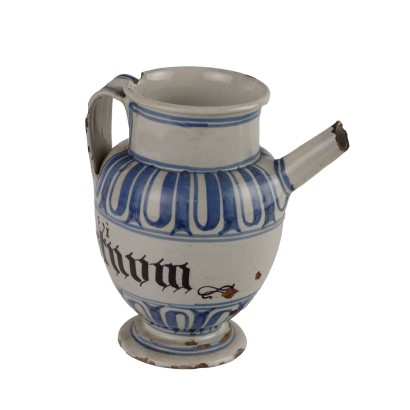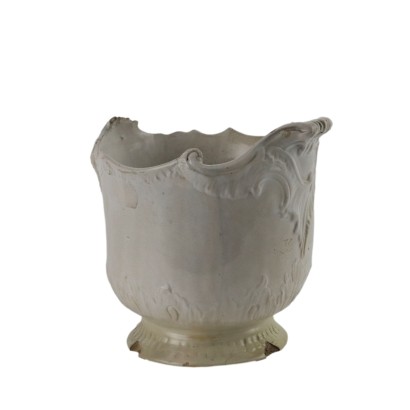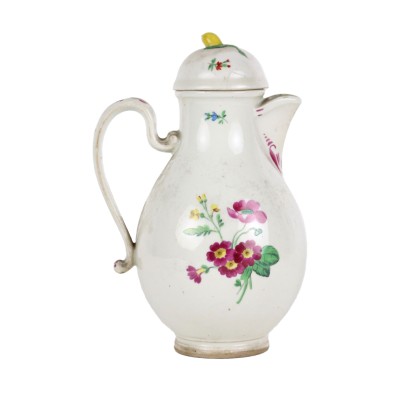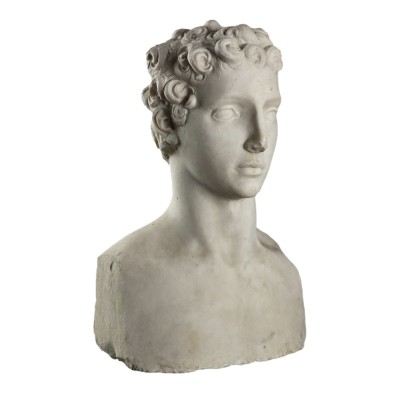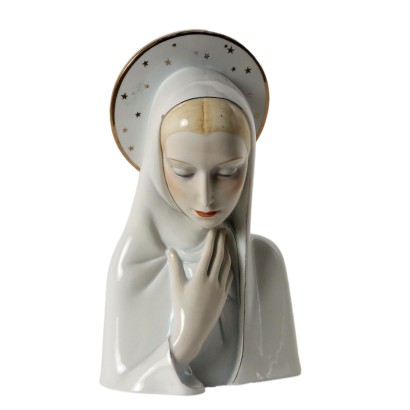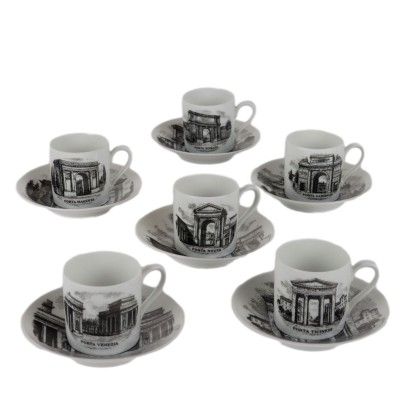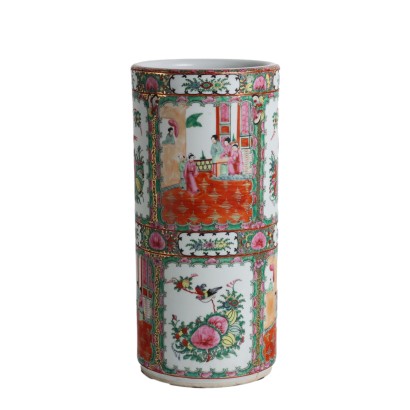Antique Chest of Drawers Louis XVI Fir Walnut Italy XVIII Century - Italy, Late XVIII Century
Features
Italy, Late XVIII Century
Age: 18th Century / 1701 - 1800
Origin: Italy
Main essence: Silver Fir , Brazilian Rosewood , Walnut , Indian Rosewood
Description
Neoclassical chest of drawers in walnut and fir, veneered in Indian rosewood. Front with three drawers and sides framed by frames veneered in bois de rose and Indian rosewood. Truncated conical legs, top replaced. Missing parts present. Italy, last quarter of the 18th century.
Product Condition:
Product that due to age and wear requires restoration and polishing. We try to present the real condition of the furniture as completely as possible with the photos. If some details are not clear from the photos, what is reported in the description is valid.
Dimensions (cm):
Height: 89,5
Width: 121,5
Depth: 58
Additional Information
Age: 18th Century / 1701 - 1800
18th Century / 1701 - 1800Main essence:
Silver Fir
Soft coniferous wood, used for rustic furniture or to build the chest, that is the structure, of furniture then veneered in more precious woods. It has been used since ancient times, its most valuable use is, in the Spruce variant, in the inlays of French antique furniture of the '700 . The spruce, more typical of northern Europe, in Italy grows mainly in the Eastern Alps at altitudes above 1300 m. The noblest use of this essence was in the construction of violins, guitars and cellos: Stradivari himself produced his famous violins with this wood.Brazilian Rosewood
It is a hard, light blond wood, but with strong red and pinkish veins, which is obtained from tropical trees similar to rosewood. Its veins are reminiscent of striped tulips, which is why it is called tulipwood in English-speaking areas. It is used for inlays, often combined with bois de violette. In the 1700s and 1800s it was highly appreciated and used in France and England for precious veneers. It gives off scent for decades if not centuries after curing.Walnut
Walnut wood comes from the plant whose botanical name is juglans regia , probably originally from the East but very common in Europe. Light or dark brown in color, it is a hard wood with a beautiful grain, widely used in antique furniture. It was the main essence in Italy throughout the Renaissance and later had a good diffusion in Europe, especially in England, until the advent of mahogany. It was used for solid wood furniture and sometimes carvings and inlays, its only big limitation is that it suffers a lot from woodworm. In France it was widely used more than anything else in the provinces. In the second half of the eighteenth century its use decreased significantly because mahogany and other exotic woods were preferred.Indian Rosewood
Other customers have searched:
Cassettiera, cassettone, settimanale, mobile da camera, commode, canterano, comò..
Approfondimenti
Scopri di più su cassettiere e comò grazie ai nostri approfondimenti:
La storia nascosta in due antichi cassettoni
Conoscere il Neoclassicismo attraverso un cassettone piacentino
Un comò piemontese influenzato dal fascino per l'Oriente
Un signorile comò rococò napoletano
Una caratteristica cassettiera con alzata emiliana di perfetto gusto barocchetto
E per gli appassionati dal gusto più raffinato, c'è FineArt:
Commode a tre cassetti G.B.M., inizio XIX secolo
Canterano dipinto
Canterano emiliano, primo quarto XVIII
Cassettone a ribalta romano, secondo quarto XVIII secolo
Comò attribuito a Luigi Viglione, Luigi XVI, fine XVIII, Torino
Coppia di comò e comodino di Maggiolini
Sull'antiquariato in generale dai un'occhiata anche a
Classic Monday: da un pezzo dei nostri magazzini alla storia dell'antiquariato
L'antiquariato dalla A alla Z: il Dizionario dell'Antiquariato
Il dizionario dell'antiquariato - Lastronatura
Il dizionario dell'antiquariato - Mascherone
Il dizionario dell'antiquariato - Natura morta
Il dizionario dell'antiquariato - Opificio
Il dizionario dell'antiquariato - Pastiglia
Il dizionario dell'antiquariato - Savonarola
Il dizionario dell'antiquariato - Rosone
Approfondimenti
Scopri di più su cassettiere e comò grazie ai nostri approfondimenti:La storia nascosta in due antichi cassettoni
Conoscere il Neoclassicismo attraverso un cassettone piacentino
Un comò piemontese influenzato dal fascino per l'Oriente
Un signorile comò rococò napoletano
Una caratteristica cassettiera con alzata emiliana di perfetto gusto barocchetto
E per gli appassionati dal gusto più raffinato, c'è FineArt:
Commode a tre cassetti G.B.M., inizio XIX secolo
Canterano dipinto
Canterano emiliano, primo quarto XVIII
Cassettone a ribalta romano, secondo quarto XVIII secolo
Comò attribuito a Luigi Viglione, Luigi XVI, fine XVIII, Torino
Coppia di comò e comodino di Maggiolini
Sull'antiquariato in generale dai un'occhiata anche a
Classic Monday: da un pezzo dei nostri magazzini alla storia dell'antiquariato
L'antiquariato dalla A alla Z: il Dizionario dell'Antiquariato
Il dizionario dell'antiquariato - Lastronatura
Il dizionario dell'antiquariato - Mascherone
Il dizionario dell'antiquariato - Natura morta
Il dizionario dell'antiquariato - Opificio
Il dizionario dell'antiquariato - Pastiglia
Il dizionario dell'antiquariato - Savonarola
Il dizionario dell'antiquariato - Rosone
Product availability
The product can be seen at Cambiago
Immediate availability
Ready for delivery within 2 working days from ordering the product.



